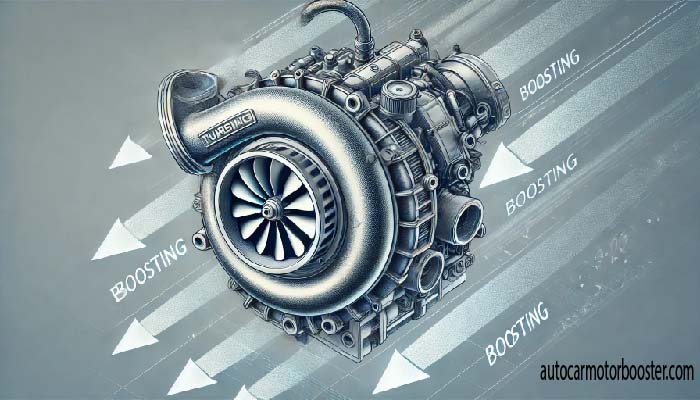
In the world of automotive performance, boosting has become increasingly popular. Car enthusiasts and racers alike rely on turbochargers and superchargers to increase power output. But one question remains crucial: how does boosting impact engine longevity? This article explores the effects of boosting on an engine’s life, the factors that influence wear and tear, and ways to maximize longevity while enjoying extra power.
What Is Boosting?
Boosting refers to the process of increasing the engine’s power by forcing more air into the combustion chamber. This can be done through turbocharging or supercharging. A turbocharger uses exhaust gases to spin a turbine and compress air into the engine, while a supercharger is directly connected to the engine via a belt, providing instant power without waiting for exhaust buildup.
How Boosting Affects Engine Components
- Increased Cylinder Pressure When boosting, the cylinder pressure increases significantly, leading to higher stress on the pistons, connecting rods, and crankshaft. This added pressure can accelerate the wear on these components over time.
- Higher Operating Temperatures Boosting an engine also raises operating temperatures due to the greater workload. Elevated temperatures can lead to issues like heat soak and thermal breakdown of the engine oil, which could reduce the lifespan of internal parts.
- Additional Stress on the Cooling System Boosted engines require a robust cooling system. If the cooling system isn’t upgraded to handle the additional heat, overheating may occur. This may lead to head gasket failures and, in extreme cases, engine block damage.
- Increased Fuel Demand With more air comes a need for more fuel to maintain a balanced air-fuel ratio. Boosted engines often need a high-flow fuel system to prevent lean conditions (where there is more air than fuel), which can cause detonation and lead to significant damage.
- Wear on the Turbo or Supercharger Turbochargers and superchargers themselves undergo wear due to high-speed operation and exposure to hot gases. Regular maintenance and quality parts are essential to prevent early failure of these components.
Ways to Improve Engine Longevity with Boosting
1. Choose High-Quality Components
High-performance forged pistons and heavy-duty rods are designed to handle higher pressures and temperatures. Quality materials can significantly increase engine durability when boosting.
2. Tune the Engine Properly
Professional engine tuning is vital. An optimized tune helps maintain a balanced air-fuel ratio, minimizing the risk of detonation. Using a reputable ECU (Engine Control Unit) tuner can ensure that boosting stays within safe limits.
3. Upgrade the Cooling System
Boosted engines benefit from a larger radiator, upgraded intercooler, and oil cooler to manage the additional heat. Effective cooling can prevent engine overheating and component degradation.
4. Use High-Quality Oil and Regularly Change It
Boosted engines should run on high-quality, synthetic engine oil with a high heat tolerance. Regular oil changes are crucial to remove contaminants that can accelerate wear.
5. Maintain Moderate Boost Levels
Excessive boost can drastically shorten an engine’s lifespan. Moderate boosting levels, combined with frequent monitoring of engine health, can help strike a balance between power and longevity.
Common Misconceptions about Boosting
- Boosting Will Always Destroy an Engine While boosting can accelerate wear, it doesn’t mean an engine will fail immediately. With proper care and moderate boosting, engines can perform reliably over time.
- Any Car Can Be Boosted without Modifications Stock engines often lack the internal strength to handle high boost levels. Upgrades are usually necessary for longevity.
- Boost Only Affects the Turbo or Supercharger Boosting impacts various parts of the engine, not just the turbo or supercharger. Pressure, temperature, and stress levels increase throughout the engine.
- Cooling System Upgrades Aren’t Necessary Overheating is a primary risk with boosting. Upgrading the cooling system is essential for any boosted engine to avoid premature wear.
- Higher Boost Equals More Power Without Consequences More boost may result in more power, but it also adds stress. Careful balance is essential for durability.
FAQs about Boosting and Engine Longevity
Q1: Can I boost my engine without impacting its longevity?
A1: Boosting will generally reduce an engine’s life due to added stress, but quality parts and maintenance can significantly mitigate this impact.
Q2: What is the ideal boost level to maintain engine longevity?
A2: Typically, moderate boost levels are best. Excessive boost increases wear, so consult a professional tuner to find the safe limit for your engine.
Q3: Do I need special fuel for a boosted engine?
A3: High-octane fuel is often recommended for boosted engines to prevent knocking and ensure safe combustion under higher pressures.
Q4: How often should I change the oil in a boosted engine?
A4: Frequent oil changes, typically every 3,000-5,000 miles, are recommended to keep the engine free of contaminants and reduce wear.
Q5: Will a boosted engine require more maintenance?
A5: Yes, boosted engines generally need more frequent maintenance and careful monitoring of critical parts to ensure longevity.
If Like This Article Visit Our Website. Collect From Wekiapedia